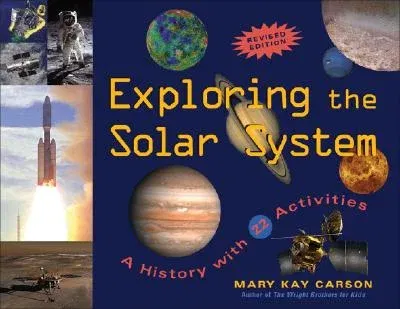Mary Kay Carson
(Author)Exploring the Solar System: A History with 22 Activities (Revised)Paperback - Revised, 1 February 2008

Qty
1
Turbo
Ships in 2 - 3 days
In Stock
Free Delivery
Cash on Delivery
15 Days
Free Returns
Secure Checkout

Reading Age
Ages: 10-13
Grade Levels
5-8
Part of Series
For Kids
Print Length
168 pages
Language
English
Publisher
Chicago Review Press
Date Published
1 Feb 2008
ISBN-10
1556527152
ISBN-13
9781556527159
Description
Product Details
Audience:
Ages: 10-13
Author:
Book Edition:
Revised
Book Format:
Paperback
Country of Origin:
IT
Date Published:
1 February 2008
Dimensions:
21.74 x
27.79 x
1.27 cm
Educational Level:
Grade Levels: 5-8
ISBN-10:
1556527152
ISBN-13:
9781556527159
Language:
English
Location:
Chicago, IL
Pages:
168
Publisher:
Series:
Weight:
639.56 gm